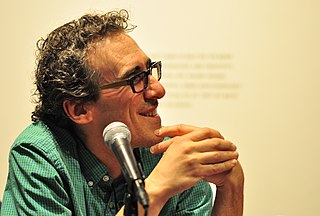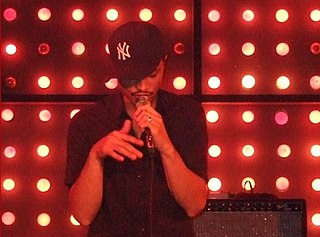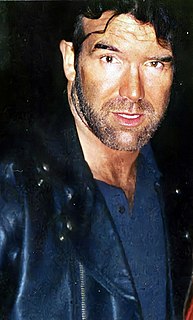A Quote by Malcolm-Jamal Warner
I've always been a poet. My dad went to Lincoln University with Gil-Scott Heron, so I came out of the womb listening to Gil-Scott Heron.
Related Quotes
I found poetry at 12 and 13 and, lo and behold, learned that my attorney father had a background in poetry - as he wore dashikis and Afros in the '70s and named his kids Arabic names. He was a poet and a lot like The Last Poets and Gil Scott-Heron and all of these folks. He definitely was an artist.
Comeback records always worry me, especially when they're made by one of my heroes, and I'd heard stories about Gil Scott-Heron recently, about drug arrests and prison terms and other troubles. I wasn't prepared for the ravaged shakiness of his voice on this record or the raw spoken word pieces or the dark electronic backgrounds.
I think comparisons are very on the surface. If I sing, like, 'Park Bench People,' and there's kind of a social undertone, people will say I sound like Gil Scott-Heron. But for me, the more insightful comparison would be a Roberta Flack or Nina Simone - people who really mix different genres of music.
When I came home my parents were listening to Pakistani Qawwali music, like Nusrat Fateh Ali Khan, they're listening to music from Mali, like Ali Farka Toure, they're listening to Brazilian songwriters, like Gilberto Gil, to opera, to Neil Young even, things you don't hear as a kid in Caracas. I love all the music they turned me onto.
It's interesting that some people reading the comics see Scott Pilgrim as a blank slate in that they like to imagine themselves as Scott Pilgrim, so it's interesting that there are two kind of schools of thought about the character. One is, like, Scott Pilgrim is awesome. The second is Scott Pilgrim believes himself to be awesome.
I've always taken a lot of cues from comedy minds. The guy that discovered me in the very beginning was Joseph Cates. Joe and Gil Cates were the Cates brothers. Gil produced the Oscars for many years. Joe produced a lot of comedy specials, Steve Martin specials, and he discovered me, this 18-year-old kid.
































